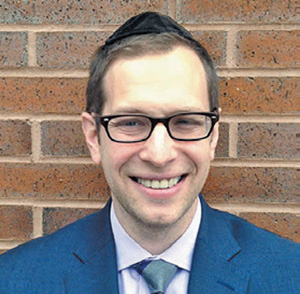
Parshat Bamidbar discusses the degalim: four groups of Shevatim, each with a specific camping location around the Mishkan. Although bnei Yisrael traveled and camped in the past, this arrangement only starts after the Mishkan is built. Why is that?
Jonathan HaCohen was quite a basketball player. Considered to be tops in the Yeshiva High School league as a 10th grader, Jonathan took his school to the championship game two years in a row, winning once. As league MVP last year, you couldn’t think about his school—Bereishit Academy for Lifelong Learning and Excellent Robot Stories (“BALLERS”)—without thinking about Jonathan. This explains the shock that the community experienced when Jonathan transferred to BALLER’s rival school, the David Unterman Never-ending Knowledge Experience and Rabbinic School (“DUNKERS”).
Truthfully, Jonathan switching schools had nothing to do with basketball. Jonathan was hoping to be a professional acrobat and that was the only local yeshiva that taught trapeze. Either way, Jonathan now had a new school, one with better teammates than those at BALLERS. This made DUNKERS the favorite to win the championship, which would be the first in school history. Jonathan made the team easily and came to the first practice ready to work. At the end of practice, Coach Friedman called the team together to hand out their jerseys. Jonathan was excited that his number 25 was available, and was looking forward to seeing his name on the back. However, Jonathan was in for quite a surprise.
After receiving his jersey, Jonathan turned it around to find the number 00 on the back with no name. “Coach, there’s been a mistake! My jersey has the wrong number and no name. Is there another one in there for me?” Coach Friedman looked directly at Jonathan and responded, “If you want that name and number, you have to earn it.” Jonathan took that challenge very seriously. He was the first to arrive at practice and the last to leave. He hustled, took notes when the coaches spoke, and constantly asked them for advice. After the practice before their first game, Jonathan asked Coach Friedman about the status of his name and number. “Sorry, Jonny boy, but if you want that name and number, you have to earn it.”
Jonathan did plenty! (at least in his own mind). He led the team in scoring for the first three games (all victories), averaging 36 points per game. Jonathan was not a selfish player, and he passed the ball plenty. However, he still got the same response from Coach Friedman: “If you want that name and number, you have to earn it.” Jonathan kept at it, scoring, passing and winning, scoring, passing and winning. He eventually forgot about the name and number.
One practice, Jonathan was working on his turn-around jump shot when he noticed another player, Matt, watching him. Jonathan went over and asked Matt what he was curious about. “Your jump shot,” Matt responded. I was watching the way you shoot and I was wondering how you trained yourself to shoot like that. Your form is perfect and looks the same almost every time.” Not only was Jonathan flattered, but he saw this as an opportunity to help a teammate. Jonathan began by showing Matt how he lined up his shoulders before shooting, and walked through his shot, step by step.
After practice, Jonathan gave Matt a few websites to look at for training ideas and offered to help him more the next practice. So when the next practice came, Jonathan and Matt went to work, with Jonathan recording Matt and showing him what needed fixing. After practice, Coach Friedman called the team together. “I would like to recognize one player who has really started to go out of his way for his teammates, and also happens to have been playing some amazing basketball. Jonathan, I’m proud of you, and I got you a gift.” Coach handed Jonathan a bag, and inside was the number 25 jersey with the name “HaCohen” on the back, and a trophy for “Player of the Month.” “Thanks, Coach,” replied Jonathan, “but I’ve really gotten attached to my ‘00’ jersey, and I don’t need a trophy. What does a name and award matter when you are part of a team?”
Jonathan earned a reputation as an all-star player even before transferring to DUNKERS, yet he had not yet earned the right to be celebrated individually. This only came once he displayed care for a teammate. The degalim represent individuality: each group has a flag (as does each Shevet), and the Mishkan represents that which brings everyone together. Only once unity is created (like with the Mishkan) do we recognize individuality. Being yourself is important, just make sure you are connected to a “team” first.
(Based on a dvar Torah from Rav Yaakov Kaminetsky).
By Yair Daar
Yair Daar is an assistant principal and the resident parsha storyteller at Yeshivat He’Atid. He can be reached at ydaar@yeshivatheatid.org.











